New Delhi2 minutes ago
- Copy link
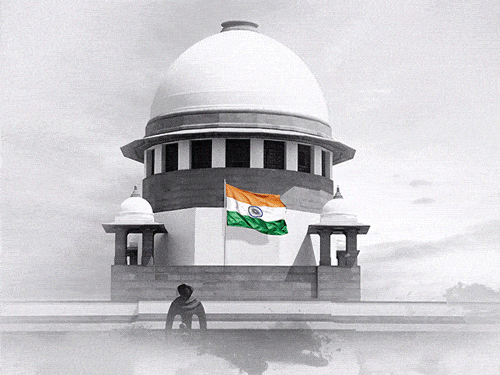
The petitions of the states, which fixed the deadline for the approval of the President and the Governor on the bills passed from the Assembly, were heard in the Supreme Court on Wednesday for the seventh consecutive day.
The governments of West Bengal, Telangana and Himachal opposed the discretionary power to stop the bills and said that making law is the work of the assembly, there is no role of governors in it. They are only formal major.
Chief Justice B.R. Gawai, Justice Suryakant, Justice Vikram Nath, Justice P.S. Narasimha and Justice A.S. Chandurkar’s bench heard. The judges said that governor cannot keep the bills pending indefinitely.
In fact, in May, President Draupadi Murmu asked the Supreme Court whether the court could set a time limit for the governors and the President to decide on the bills.
Kapil Sibal said- Public wish cannot be stopped
West Bengal lawyer Kapil Sibal said that if the bill passed from the Assembly is sent to the governor, then he will have to sign it. If that law is against the constitution, it can end the center or challenge in court. But the governor cannot stop the will of the public.
Sibal argued that Section-200 of the Constitution has no condition like satisfaction for the governor. Either they sign the bill, or send it to the President. Stopping continuously is against the spirit of the Constitution. He said, “If the Governor stucks the bill from the choice, it will make democracy impossible.”
Himachal’s lawyer Anand Sharma said- no role in making laws of governors
- The governor has no role in making laws. The government starts the process of calling Parliament or Assembly. The governor or president only plays formalities.
- The federal structure (Federalism) is the strength of India and is part of the infrastructure of the Constitution. If the governor stops the bill, it will increase the conflict in the center-state relations and it will be dangerous for democracy. The office of the governor cannot be used to deny the public will. “
Karnataka’s lawyer Gopal Subramanian said- ‘Diarky’ cannot be done in the state
The Supreme Court said that there cannot be a system of dual government (Diarici) in the state. The governor will always have to work on the advice of the Council of Ministers. He said that the Constitution gives the Governor a discretion only in two situations. First, when the Governor sends a report to the President under Article 356 and second, when a bill affects the powers of the High Court (the second condition of Article 200). The governor has no independent power except these two conditions.
The Center had said- State Governments cannot go to SC in the case
The Supreme Court has already said that if the Governor keeps the bill with indefinite time, then the importance of the word ‘quick’ will end. However, the central government had argued that the state governments could not knock the doors of the Supreme Court in this matter, as the decisions of the President and the Governor do not come under the purview of judicial review.
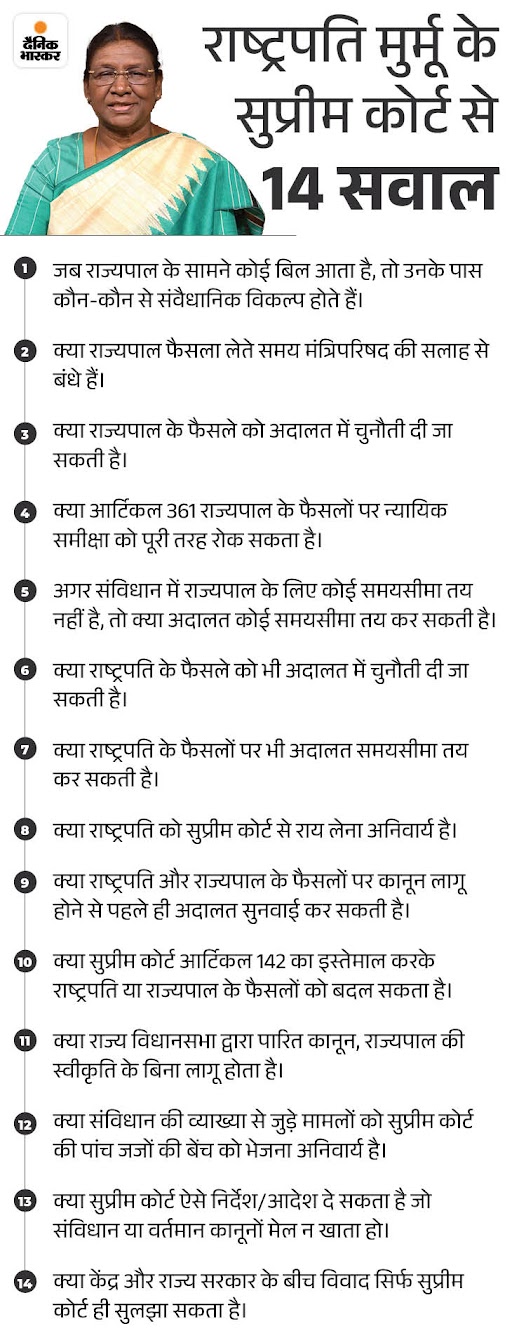
Controversy started from Tamil Nadu …
The case was raised from the dispute between the Tamil Nadu Governor and the State Government. Where the state government bills were stopped from the governor. The Supreme Court on 8 April ordered that the Governor has no veto power.
It was said in this decision that the President will have to take a decision on the bill sent by the Governor within 3 months. The order came to light on 11 April. The President then sought opinion from the Supreme Court in the case and asked 14 questions. Read full news …
What happened in the last 6 hearing …
August 2- SC said- will explain the constitution in the case of President
The Supreme Court on Tuesday said that it would interpret the constitution only in the case of the President, not in separate cases related to any state or person. The court made this comment in the case that implemented the deadline to sign the bills sent by the state government for signing the governors and the President.
During the hearing, Solicitor General Tushar Mehta said that if senior advocate Abhishek Manu Singhvi gives examples of states like Andhra Pradesh, Telangana or Karnataka, the Center will also have to file an answer. Read full news …
August 28: Center said- cannot give writ petition in state Supreme Court
The central government said that the President and the Governor cannot file a writ petition in the state Supreme Court against the action on the bills passed by the Assembly. The Center said that the state governments cannot use Article 32. Because fundamental rights are for common citizens, not for states. Read full news …
August 26: BJP ruled states said- Court cannot decide a time limit
In the last hearing on 26 August, the BJP -ruled states presented their stand in the court. Lawyers of BJP ruled states including Maharashtra, Goa, Uttar Pradesh, Haryana, Chhattisgarh, Odisha and Puducherry said that the court does not have the right to approve the bills.
On this, Chief Justice of India (CJI) BR Gawai asked that if a person would ban the bills from 2020 to 2025, should the court sit helpless? The CJI asked the central government whether the Supreme Court should renounce its responsibility as the ‘Patron of the Constitution’?
On behalf of Maharashtra, senior advocate Harish Salve said that only the Governor or the President has the right to approve the bills. In the constitution, it should be assumed that there is no system as the bill has passed without approval.
Additional Solicitor General KM Natraj (from Uttar Pradesh and Odisha) said that the President and the Governor have the right to autonomous and conscience before approved on bills. The courts cannot decide a time limit. Read full news …
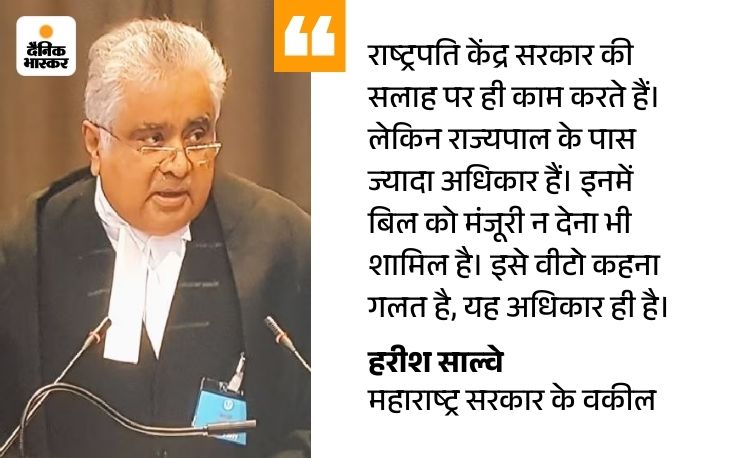
August 21: Center said- States should talk and settle disputes
The central government said in the Supreme Court that if the Governor does not take any decision on the Bills, then the states should solve the resolution instead of the court. The Center said that all the problems cannot be solved by the courts. Dialogue should be given priority in democracy. We have been here for decades. Read full news …
August 20: SC said- Government cannot follow the will of governors
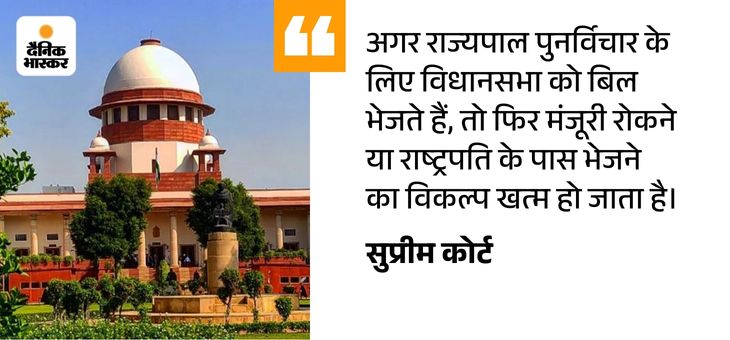
The Supreme Court said that the elected governments cannot follow the will of the governors. If a bill passes from the state assembly and comes to the Governor for the second time, the governor cannot send it to the President. The court said that the governor does not have the right to stop the approval indefinitely.
August 19: SRakar Boli- Can the court write again
In the first day hearing on the matter, Attorney General R Venkatarmani on behalf of the Central Government said on the April 2025 decision of the Supreme Court that whether the court can re -write the constitution? The court looked at the Governor and the President as a general administrative officer, while he is a constitutional post. Read full news …

,
Read this news too …
The post of PM-CM on arrest or 30 days of custody will be applied in 5 years+ punished offense; Government brought bill
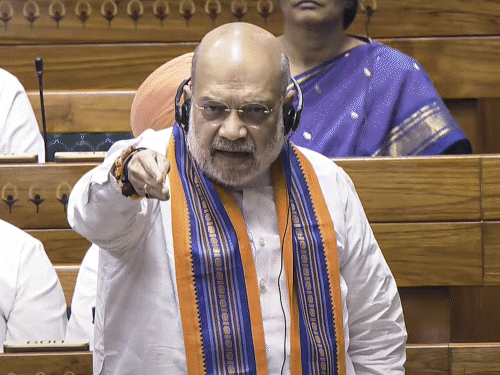
The Prime Minister-Chief Minister or any minister will have to step down for arrest or for 30 days. The condition is that the crime for which custody or arrest has been made, there should be a provision of punishment of 5 years or more. Home Minister Amit Shah on Wednesday introduced three bills related to it in the Lok Sabha. There was a lot of uproar in the Lok Sabha against the three Bills. Read full news …



